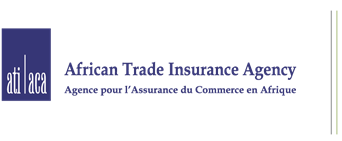African Trade Insurance Agency (ATI) projected to maintain its ‘policy importance’ to Africa despite COVID-19 related economic challenges in the region.
- Rationale for the rating included: robust equity growth to US$349 million; strong top-line growth in 2019 posting a 70% increase in the Gross Written Premium over 2018 and a 134% increase in the Net Profit; and significant expansion in the shareholder base leading to a record US$6.4 billion Gross Exposure.
- The report also noted ATI’s ‘solid record of preferred creditor treatment’ having fully recovered all outstanding sovereign obligation claims from previous years.
- Sound enterprise risk management practices, strengthened by strategic hires such as a Chief Risk Officer in February 2020 were also cited as key factors supporting ATI’s rating result.

NAIROBI, 29 April, 2020 – S&P Global Rating published its annual assessment of the African Trade Insurance Agency’s (ATI) performance reaffirming the company’s creditor rating of ‘A’ with a Stable Outlook (A/Stable) and noting ATI’s ‘policy importance’ to the region. This is ATI’s 13th annual S&P rating, which has remained consistent despite occasional economic downturns and instability in the past decade and now in the current COVID-19 pandemic.
ATI’s continued strength was attributed to several factors including its demonstrated preferred creditor status, which is seen as a key factor in the company’s ability to weather the expected negative impacts of COVID-19. Specifically, S&P noted “Even amid weakening economic fundamentals in the region following the outbreak of COVID-19, we expect that ATI’s members will uphold ATI’s preferred creditor status, recovering any payouts on noncommercial claims.”
S&P also indicated that this rating outlook factors in the difficulties facing the countries ATI operates in during the Coronavirus pandemic, and assessed that ATI remains capable of weathering the effects of a difficult period ahead particularly during 2020.

ATI’s increased market penetration and tremendous membership growth was also cited as noteworthy. In the past three years ATI has attracted a record seven new member countries of Ethiopia, Côte d’Ivoire, South Sudan, Zimbabwe, Ghana, Nigeria, and Niger in addition to an investment from Chubb – the world’s largest global property and casualty insurer and from the Indian Government, through the Export Credit Guarantee Corporation (ECGC), representing the first non-African sovereign shareholder.
This growth contributed to ATI’s record US$6.4 billion Gross Exposure, a 35% increase over 2018. These achievements served to cement S&P’s “view of ATI’s strong policy importance” as stated in the report.
ATI’s “sufficient and appropriate” risk management framework was also seen as vital to its growth and success. In particular, S&P highlighted the board and management’s continued support of the integration and enhancements to ATI’s credit risk framework, which resulted in the efficient management of the company’s maximum net exposure remaining at “well below 5x equity from the current formally approved 6x to 8x band.” ATI’s current net exposure stands at 3.1x equity.

The report specifically mentioned the importance of ATI’s plans to “hire key personnel to support its risk-management capabilities in line with its growth trajectory” most notably, the appointment of Deepak Dave as Chief Risk Officer in February 2020 and the expected appointment of a new CEO in mid-2020.
To view the full report: ATI’s 2020 S&P Rating
John Lentaigne, Acting CEO of ATI said:
“This report from S&P affirming ATI’s rating amidst such an unprecedented market turbulence, supports our recent statements to the financial markets about our capacity and institutional commitment to stay the course and help our African member countries through the anticipated COVID-19 storm. ATI’s standing as an important partner for other Development Finance Institutions, global and regional financial sector institutions, and African governments is, to my mind, imperative to our ability to help ensure that investments and trade continue to flow in the region particularly during the current pandemic.”
VIDEO: African investment landscape – is there a liquidity / risk mitigation mismatch?
























